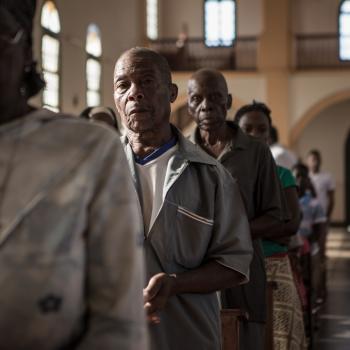 As a retort to the old saying that “a New Englander never uses ten words when one will do,” I’ve heard it said that “a Southerner never uses one word when ten will do.”
As a retort to the old saying that “a New Englander never uses ten words when one will do,” I’ve heard it said that “a Southerner never uses one word when ten will do.”
I’m proof of the latter. I’ve got a big mouth and have gotten into trouble using it for most of my life.
“You sure do talk a lot.”
“You shouldn’t have said that.”
“Why do you ask so many questions?”
These are common observations by my friends from other climes. Every time I go out, I swear to myself that I won’t dominate the dialogue. But I customarily fail before I’ve even taken my coat off. There has never been an awkward silence with me in the house.
It’s not exactly all my fault, though. I was raised to be verbose; we would get in trouble if we didn’t talk at the supper table. I’m not kidding; we really would. To my mother, conversation was considered a serious responsibility, and you were expected to carry your fair share of it.
Despite remarks said to me like the ones above, I’ve found this training has stood me in good stead on the whole. A lot of folks are glad to have me around, so that they can eat and drink more than they ordinarily would while I play the host for them.
Still, as far as the inclination towards words is concerned, I keep coming across adages that discourage the practice. Or at least, they find it secondary or supplementary to that which is really important. The most recent example is the saying, attributed to St. Francis of Assisi, that’s currently making the rounds: “Preach the gospel; if necessary, use words.”
Always popular, the maxim is even more prevalent because the Argentine Bishop chosen as Pope has taken St. Francis’ name. And as one who has counseled the faithful to live deeds of service, and who himself has led a humble life, the former Cardinal Bergoglio seems a good model to show how example is more efficacious than homiletics.
Deep down, we probably all believe this. It’s self-evident. Action is the place where conviction finds the gas pedal. It’s the proof that sustains the pledge. A man who can back up what he says is to be admired. Otherwise, in the parlance of my people: “He’s all hat and no cattle.”
So judging by his history, Pope Francis not only has a big miter, he also has a sizeable flock to match it: 1.2 billion of us, I keep hearing them say.
I’ve even taught this maxim in an ethics class before, with a couple of trusty tales pulled out whenever the question turns to authenticity. The most popular involves a man down in Tennessee who lost his child in a house fire. Wailing and moaning, he explained to TV reporters how much he loved his infant son and how difficult life would be without him: “I ran back in [the house] and got my stereo out, and I almost had time to go back for my baby before the smoke got too thick.”
That one is counterbalanced with another: the man of gruff countenance and few words, never complimenting, praising, or embracing his children, but who worked three jobs—day, night, and weekends—to provide not only for their daily bread, but also for their music lessons and college funds.
Of course, the point of these elementary examples is to contrast the ease with which words are spoken and the difficulty with which acts are accomplished.
Now, in the perfect situation, you would marry the expression of the charlatan stereo-saver with the activity of the silent patron of all desires. There’s no reason why they cannot be integrated, and something is missing in a world without words. We could get by without the voice, I suppose, but we’re enriched by its contributions.
We need our St. Augustine as much as we do our St. Francis.
In fact, before we take Francis to an extreme that would be unfair to him, it should be cautioned that in times like these, we are in dire need of words. There are so many false prophets and diabolical obfuscators—so many who tempt us not only by deeds, but also by lovely, luxurious words spoken with a serpentine sibilance.
These must be offset by the truth—words that are hard, and even sometimes unlovely, but that counteract the great book of lies that the world writes for us every day.
“Faith without works is dead,” is a complimentary adage to that of Francis, and I concede that good deeds are the greater testimony. They are also a witness that any, regardless of eloquence, can provide.
But living in the days of the Great Confusion as we do, words are often—however tragic the case—all too necessary. If we can, we must find our way to them, so that our witness is no more silent than the circumstances call for.















